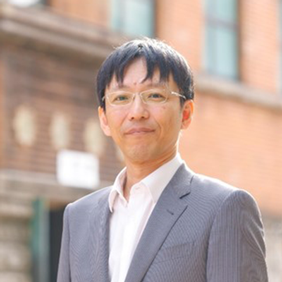2023 JFIPP Research Fellow - Kazutoshi Suzuki

Kazutoshi Suzuki
Professor, Faculty of Global Studies, Sophia University
[Project Title]
On the impact of realignment in the international economic networks
Project Summary
A great realignment in the global economic network is underway. Policies such as de-coupling and friend-sharing are becoming more prevalent, leaving our understanding of the ramifications of these policies unclear. By developing metrics to capture the bargaining powers of states in changing network topology, the applicant intends to reveal the impacts of these policies on the diplomatic power of states.
The global economy has become increasingly integrated through multilateral trade liberalization under GATT/WTO, resulting in a non-discriminatory trade order. This fully connected mesh network of the global economy is changing as policies such as friend-sharing, de-risking, reshoring, and de-coupling have proliferated as concerns over national security and the weaponization of interdependence grew. Now the network is being realigned along with the strategic positions, regime types, and shared values. How this change in network topology affects state powers is yet to be clear, especially in light of indirect impacts of third parties and the changed nature of production networks. To address these, the applicant is building models incorporating both effects.
In a world where actors are connected by extensive multinational production chains, stronger indirect effects should be expected, since the transaction that just passes through one state can be the object of information gathering and blockade of entire production value chains, even when that state does not have direct trade relation with the targeted nation. States situated several links away from the target can now exert a significant influence. Farrell and Newman (2019) and Drezner et al. (2021) pointed out two such forms of power that arise from network topology and actors' position therein: panopticon power to glean information from third-party interactions that go through itself, and choke-point power to cut off the production networks. I will formalize these two new powers, in addition to two traditional conceptions of power that arise from interdependence: sensitivity and vulnerability.
Such stronger or less-waning impact of indirect links, I argue, creates a complexity, where (dis)connection of a tie between third parties can dramatically change the power“s” that a state enjoys. Decoupling between state A and state B can change the power of state C on state D, and the direction and degree of this change can be different among power“s” that are based on sensitivity dependence, vulnerability dependence, panopticon, and choke-point. In such a system, it remains unclear as to which country's power will be strengthened when the economic relations between which countries deepen. Presenting an answer to this question from the perspective of International Politics is the purpose of this project.
I have been developing preliminary formulas of power, and plan to build an integrated model before the end of AY 2023. In this proposed project, I aim to improve this model by seeking comments from researchers well versed in methodologies, in addition to policy experts of the Indo-Pacific region to make the model pragmatic. Then I will simulate the effects of past policies by inputting actual data into the refined model and verify the effects of those policies through case studies.
- What We Do Top
- Arts and Cultural Exchange [Culture]
- Japanese-Language Education Overseas [Language]
- Japanese-Language Education Overseas [Language] Top
- Learn Japanese-language
- Teach Japanese-language
- Take Japanese-Language Test
- Know about Japanese-language education abroad
- The Japanese-Language Institute, Urawa
- The Japanese-Language Institute, Kansai
- Japanese-Language Programs for Foreign Specified Skilled Worker Candidates
- Japanese Language Education for Japanese Children Resident Overseas and for the Descendants of Migrants
- Archives
- Japanese Studies and Global Partnerships [Dialogue]
- JF digital collection
- Other Programs / Programs to Commemorate Exchange Year
- Awards and Prizes
- Publications
